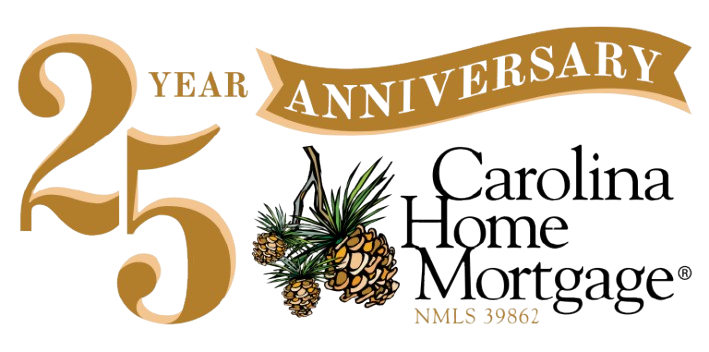Carolina Home Mortgage offers loans for manufactured homes that are doublewide or larger. Also, the home must be on a brick foundation and permanently affixed. If you are considering the purchase of a manufactured home, it is a good idea to talk to a mortgage loan officer prior to making an offer. You can obtain the following mortgage types for your manufactured home,
Guidelines
Conventional
FHA
USDA
VA
Steps to Getting a Conventional Mortgage
When deciding how much you can borrow (and your co-borrower if you have a partner) all lenders review,
Your down payment amount.
#1Your income, including your work history.
#2Your credit scores.
#3Your monthly payments (including credit cards, car loans, student loans, child support).
#4Your total house payment which includes Principal, Interest, Property Taxes, and Homeowner's Insurance (PITI). If required, your total house payment would also include monthly mortgage insurance (PMI). More on your total house payment will follow.
#5Your Income
You share your two-year work history by providing
If you are self-employed, it is important that you have been so for the past two years. If you have been in the same line of work for the past two years and filed at least one tax return as a self-employed individual, you may be eligible. For a quick answer, send your personal and/or corporate tax returns to a lender, so they can calculate your income to see how much house you can afford.
If you recently graduated from college and started a new job, do not worry. Being a college student counts toward your two-year work history.

Your Credit Score
For a home loan, you need a tri-merge score or a residential mortgage credit report (RMCR). A tri-merge score includes the scores from the three largest credit-scoring agencies, Equifax, Experian, and Transunion. An RMCR is not free, but we do not charge up front for the RMCR. The RMCR includes three scores, and we use the middle score. There is additional information on your borrowing habits to help a lender decide how much you can borrow. The RMCR is a stricter look at your ability to repay a mortgage.
The higher the score, the better your interest rate. Advertised interest rates are just the typical rate for most borrowers. You will find that if you have a low score, the lender wants to charge a high rate, and if you have a high score, the lender wants your business and offers you a lower rate. As noted, you need a score of 620 or higher for a conventional mortgage.
Auto loans, credit card debt, and student loans are a good credit score indicator for lenders if you paid them on time. Late payments, on the other hand, lower your credit score.

Debt-to-Income Ratio
We compare how much money you owe to how much money you make, called a debt-to-income ratio (DTI).
Front DTI uses your house payment as a percentage of your gross monthly income. Gross income is the money you make before taxes are taken.
If your house payment is $1,000 and your gross monthly income is $4,000, your front DTI is 25 percent. The best borrower will have a front DTI that is 20 to 35 percent.
If you have other monthly payments like auto, credit card, student loans, or child support, lenders will count your Total DTI by taking your house payment plus the other monthly payments as a percentage of your gross monthly income.
If your house payment is $1,000 and your auto payment is $500, you have total monthly payments of $1,500. This is 37 percent total DTI based on gross monthly income of $4,000. The best borrower will have a total DTI that is 35 to 45 percent.
If you want to know your DTI
Contact Us
Total House Payment
PITI means principal, interest, taxes, and insurance. Your total house payment will include these.
The principal is the amount you borrow from a lender. The interest is the rate you pay the lender on top of the borrowed principal. While you agree to borrow a certain amount, or principal, you’re actually paying back the principal plus interest.
Property taxes are set by a city or county tax worker who decides the value of your home. Property values are updated about every four years, but tax rates can be adjusted annually. Most borrowers make property taxes part of the monthly mortgage payment, but you can pay them separately. Property values and tax rates are available online at city and county government sites.
All lenders require you to buy insurance for your home, called homeowner’s insurance. You pick the insurance policy, and the payment is added to your monthly payment.
Private Mortgage Insurance
Each loan type, conventional, FHA, USDA, and VA has fees that are a type of mortgage insurance. You should review the differences based on the type of loan you’d like to receive. If you get a conventional loan, private mortgage insurance (PMI) will be added to your monthly payment if you choose to put down less than 20 percent of the purchase price. Mortgage insurance protects the lender in case you do not make your payment; it does not protect you if you cannot make your mortgage payment.
Nearly half of home loans have some form of mortgage insurance added to the monthly payment. The cost of mortgage insurance ranges from 1/2 to 2 percent of the loan amount and depends on how much you put down and your credit score. When your principal balance, which is basically the amount you borrow, reaches 80 percent of the original value of the home, you can request to cancel the mortgage insurance. This information will be provided to you in a PMI disclosure. The original value of your home is either the purchase price or the appraised value of your home when you purchased it.
Cash
We ask how much money you currently have in checking, savings, and other accounts. Unless you are buying new construction, you must pay the seller due diligence and earnest money along with your offer to purchase*. Your realtor will explain these items along with your offer to purchase. For your mortgage, you need money for a down payment and possibly to cover the cost to legally sign for the loan. Signing for the loan is also called closing the loan. Count on spending $3,000 to $7,500 for your **closing costs.
**For more information, see Closing Costs.

